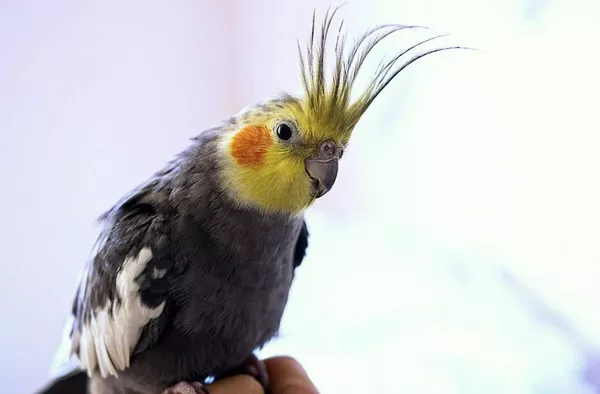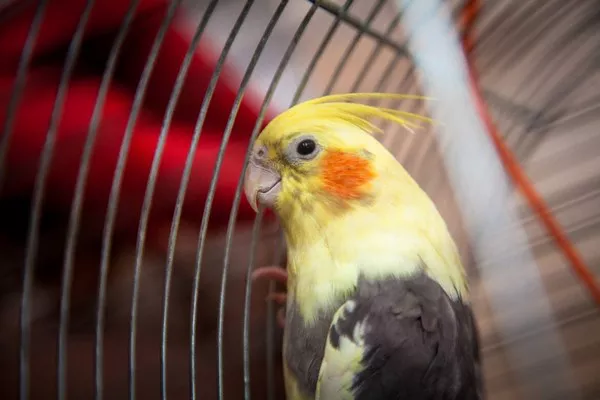Cockatiels (Nymphicus hollandicus), often referred to as “tiels,” are popular pet birds known for their charming personalities and striking appearances. Before bringing a cockatiel into your home, it’s important to understand how long you can expect them to live. In this article, we will dive into the average lifespan of cockatiel birds, factors that influence their longevity, and ways to ensure they have a healthy and fulfilling life.
1. The Average Lifespan of Cockatiel Birds
Cockatiels have a relatively long lifespan compared to many other small pet bird species. On average, these delightful creatures can live anywhere from 15 to 25 years in captivity. However, with proper care and attention, some cockatiels have been known to live well into their 30s or even 40s. This means that bringing a cockatiel into your family is a long-term commitment, and you should be prepared to care for them over several decades.
2. Factors Influencing Cockatiel Lifespan
Several key factors play a role in determining the lifespan of a cockatiel:
a) Genetic Factors: Like humans, genetics play a significant role in determining an individual’s lifespan. Cockatiels with strong genetic backgrounds tend to have a higher chance of living longer lives. It is essential to obtain your cockatiel from a reputable breeder who prioritizes breeding healthy and robust birds.
b) Diet and Nutrition: Providing a well-balanced, nutritious diet is crucial for the overall health and longevity of cockatiels. Their diet should consist of high-quality commercial seed mixes supplemented with fresh vegetables, fruits, and occasional treats. Avoid feeding them foods that are toxic to birds, such as chocolate, avocado, caffeine, and alcohol. Proper nutrition supports their immune system, prevents diseases, and promotes overall well-being.
c) Veterinary Care: Regular veterinary check-ups are essential for monitoring your cockatiel’s health and addressing any potential issues early on. Schedule annual wellness exams with an avian veterinarian who specializes in bird care. These professionals can conduct thorough examinations, provide vaccinations, and detect and treat any health problems promptly. Quick intervention can significantly increase the chances of a longer life for your feathered friend.
d) Living Environment: Creating a suitable living environment is vital for the well-being of your cockatiel. They require a spacious cage that allows them to spread their wings and move around comfortably. The cage should be placed in a draft-free area away from direct sunlight, extreme temperatures, and harmful fumes. Provide perches of varying sizes and materials to keep their feet healthy and strong. Additionally, offer plenty of toys and mental stimulation to prevent boredom and encourage exercise.
e) Emotional Well-being: Cockatiels are highly social birds and thrive on companionship and interaction. Loneliness and isolation can lead to stress, depression, and behavioral issues. Consider getting your cockatiel a same-species companion or devoting ample time each day to socialize and engage with them. Interact through talking, singing, playing, and training sessions to strengthen the bond between you and your feathery friend.
3. Promoting Longevity in Cockatiels
To ensure your cockatiel lives a long and healthy life, consider implementing the following practices:
a) Proper Diet: Provide a well-balanced diet consisting of high-quality seeds, fresh vegetables, fruits, and occasional treats. Consult with an avian veterinarian or avian nutrition specialist to determine the best diet plan for your bird’s specific needs.
b) Regular Exercise: Encourage physical activity by providing a spacious cage with room for flight and regular out-of-cage time for supervised play and exploration. Cockatiels enjoy flying, climbing, and exploring their environment.
c) Mental Stimulation: Offer a variety of toys, puzzles, and foraging opportunities to keep your cockatiel mentally stimulated and prevent boredom. Rotate toys frequently to maintain their interest.
d) Veterinary Care: Schedule regular check-ups with an avian veterinarian to ensure your cockatiel’s health is monitored and any potential issues are addressed promptly.
e) Social Interaction: Spend quality time interacting with your cockatiel daily. They are social creatures and thrive on companionship. Engage in activities such as talking, singing, playing, and training to keep them mentally stimulated and bonded with you.
Conclusion
Cockatiels have an average lifespan of 15 to 25 years, but with proper care, they can live well into their 30s or beyond. By implementing proper nutrition, regular exercise, mental stimulation, veterinary check-ups, and social interaction, you can greatly increase the chances of your cockatiel living a long and fulfilling life as a cherished member of your family. Remember, responsible pet ownership requires commitment, love, and attention to ensure the well-being of these beautiful creatures throughout their lifetime.
Related Topics:


























